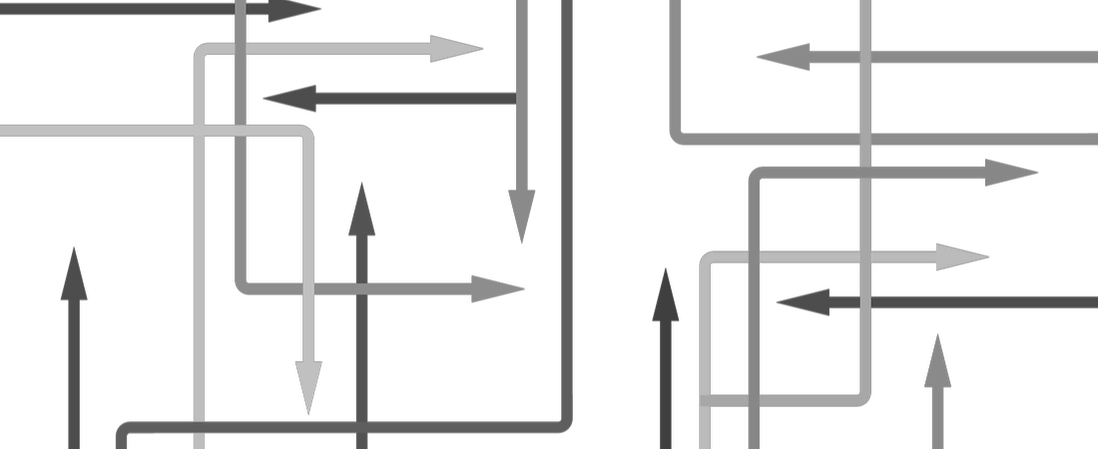|
As we close out summer and change gears for the next months, I want to encourage you to add one fun thing to the list - reconnecting with people whom you haven't connected with in a while. We all lose connection with some great people. Now is an excellent time for you to connect with great people in your life.
This month, I have been reflecting on the people in my life a lot. It may be because August holds many milestones that I could not have gone through successfully without great people. The anniversaries include moving to a new country - 18 years ago, undergoing a medical procedure - 8 years ago and starting a new - job a year ago. In this blog post, we will discuss some guiding principles and five steps to help you start reconnecting with people that matter today. Guiding Principles We all get very busy, and it is easy to lose touch with people. When you reconnect, it is crucial to keep the following in mind:
How to reconnect with people that matter Let's explore five simple steps to reconnect with people in your life. Step 1: List the 5 people you want to reconnect with Think about people whom you have not spent quality time with in the last months. Remember to include mentors and professional connections as well. I suggest keeping the list short so that you can have high-quality conversations. Questions to consider
Step 2: Determine why you want to reconnect with them It is crucial to think the reason why you would like to reconnect with the people you listed in the step above. Being intentional about the people we surround ourselves with is very important. Some of the reasons could be inspiration, encouragement, or fun. Questions to consider
Step 3: Reach out to them with a sweet note or call Now that you know who you want to reconnect with and why it is time to reach out to them and let them know. Tell them you would like to reconnect with them. It may also help to share with them why you value them. Questions to consider
Step 4: Meet with them This is the most significant and rewarding step of the process. Now you get to complete your re-connection by meeting with the person. I recommend you meet with the person in person if possible or on a video call. Looking into someone's eyes while you talk is one of the best things on earth. Questions to consider
Step 5: Agree on ways to stay in touch After you have reconnected with people, you don't want to lose contact again. Think about ways you can keep in touch and also what medium you would use to stay connected. Also, schedule time and keep your commitment to remain reconnected. Questions to consider
Call to Action
Final Thoughts
Great Resources
0 Comments
In a few days, I'll be celebrating my first anniversary at my new job. Marking this significant point on my journey, got me thinking about my experiences in the last year and other significant career milestones.
In this blog post, I will share some of my most memorable career milestones and the lessons I learned along the way. Also, check out my previous post titled "Celebrate your professional achievements" to learn five simple ways you can start celebrating your accomplishments. Starting point We are accustomed to celebrating some typical milestones such as birthdays and landmark anniversaries. In my experience, we do not spend enough time thinking about the crucial points in our careers. MC's Story Let me take you on a journey of some of my memorable career milestones: My first paid part-time job Although it was over 18 years ago, I can still remember the first twenty euros I made. The excitement of being able to do something I enjoyed, support someone, and get paid was immeasurable. This experience kicked off my career and taught me some many valuable lessons. Lessons Learned
Getting my first Internship Throughout my time at University, I wanted to go into the industry and take a job that let me see how I could use the skills I had learned. And in summer 2009, I had the great opportunity for my first internship at a Bank in Luxembourg. This was my first practical introduction to project management. Lessons Learned
Starting first full-time job I can still remember when I interviewed for jobs after I finished my first degree. And after a few months, I received my first offer for my full-time job as a Project Manager in a Digital Agency. Thinking back, I did not know what I was getting into. I learned a lot of excellent skills in the years that followed. Lessons Learned
Getting my first big promotion Doing great work was a priority for me. After a few years of being a great contributor to the company, I got my first promotion. I now appreciate the fact that back then putting in great work was what got me a promotion. It definitely gets more complicated as you progress in your career. Lessons Learned
Moving to work in a new country When we move to a new country, we typically focus more on settling in from a personal life perspective. I had a unique situation that I started working in the US only two days after I moved here. I remember the first day I walked into my new project assignment in a new country. It marked the start of the most substantial growth I have experienced in my career. Lessons Learned
Working on projects with much responsibility A few years ago, I was asked to lead a Global Project Management Office. Initially, I rejected the offer because I felt I was not ready, and I did not want to travel for work. Thankfully, they offered me the job about two months later, and I took it. This move in my career set me up for the more significant opportunities and took me to places I would never have been if I did not take the leap. Lessons Learned
Working at a new company After working at my last company for almost eights years, I made the transition to a new company. Thinking back to my first day at the new job, I was very excited to be starting a new phase of my career journey. And now, it's been a year already, and I'm in my second role, I am looking forward to seeing where my journey goes next. Lessons Learned
Final Thoughts
Call to Action
Great Resources When I hear people talk about their groups of friends, their squad or tribe, it makes me smile. I enjoy hearing how they support one another through the ups and downs of life. On my journey, I have learned to value people and connections in my life.
In this blog post, we will discuss how to make the best use of your squad. If you are not already doing these things you may want to start and if you don't have people that you can do this with, you can start looking to find these groups. Also, check out my previous post titled "Build your support community" to learn about the five types of support communities you need. Why do you need a squad or tribe?
What can your tribe help you do? To get the most value, you want your tribe to consist of people from different backgrounds. Its time to start having more meaningful conversations and smartly using your squad. Find a safe space Research shows that we need to have a phycological safe space to thrive. It is crucial to find a group of people that allow you to be vulnerable around them. We often feel that we always have to act strong and have it all together. We need to be able to let our guard down and open up to people who can help us. Questions to consider
Stay motivated Especially when your journey becomes complicated, and you are exhausted; having people who cheer you on is crucial. A squad that believes in and tells you, "you can do it" is very valuable. Questions to consider
Learn something new Learning from your tribe is essential. Surround yourself with people who are doing amazing things and can share new opportunities or ideas with you. One of the great ways to broaden your perspective is to partner with other people. Questions to consider
Get opportunities to help others It is essential to give back and not only take from your tribe. Take the opportunities you get to help other people in your squad. Helping others is a great way to grow. Questions to consider
Partner to take over the world Imagine all the things you can do when you partner with other great people. I am a firm believer of the saying, "there is strength in numbers." The fastest way to amplify your impact is to work with other people on the same projects. Questions to consider
Final Thoughts
Call to Action
Great Resources
When I think back on my 18-year relocation journey, I am very grateful to all the great people I met along the way. My story would not be complete without these people. Reflecting on my journey, I have learned the art of building and re-building my personal and professional community.
Fun Fact: This week in 2001, I left Nigeria to embark on this journey. I had no idea where I will be in 18 years. Read more of my story in the "Her Relocation" blog posts. In this blog post, I will share my experience with communities while I lived in Nigeria, Germany and the US, the five types of communities everyone should have on their relocation journey as well as strategies to help you build them. MC's Story In my first year in Germany, I lived in a small village with about 1000 people. Until then, I lived in Kaduna, Nigeria, which was a large city with over 6 million people. One of the biggest challenges I faced was that I missed my community. Growing up, I had family, friends who were an essential part of my day to day life. I had not thought about the impact of losing my community and having to build one from scratch. It took me about two long years to build my community in Germany. They became a very crucial part of my life in Germany. Even when I moved to different cities, I was able to find new people and stay connected with my great community. Moving to the US and leaving my German community behind was challenging. At this time, I was in a phase in my life where I needed to focus more on building my professional community. As I was new to the country, I had to start by learning about the professional culture and then connecting with people in my field. 5 types of communities everyone needs The communities and networks that helped me be successful on my relocation journey include the following: Your "Taste of Home" These are the people that help keep you connected to your home country or remind you of home. Personally, I connected with great people from other African countries in Germany. This group of people understood my experiences and were able to provide some comfort. A lot of my favorite memories were around us trying to find ingredients to make some African dishes we enjoyed. I met most of them in unconventional places like the bus or train station. Strategies to consider
Your "Integrators" Especially if you recently relocated, you will need people who help introduce you to your new home country. They are there to help you adjust to your new life and share knowledge of what it takes to succeed in your new country. I did a better job of ensuring I had more of these people in my community when I moved to the US. My integration into my local community was easier with the help of my "integrators." Strategies to consider
Your Professional Networks In my experience, this is typically a community that we forget to build early when we move to a new city or country. Especially if you are in your early or mid-career, you need to prioritize building your professional community. It is a continuous process that you want to continue as you grow and transition in your career. Within my first months in the US, I joined the Project Management Institute local chapter. It helped me meet great professionals in my space and provide insights into the US professional culture. Strategies to consider
Your Passion Groups Remember that it is vital to continue to grow different aspects of your life. If you have hobbies or a passion project, you want to connect with people who share your interests. This group of people will help you find balance and not lose yourself. I started building these networks about two years into being in the US. My social and professional networks were set before I started looking for people that were working on similar dreams as mine. I decided to start Mastermind groups because I wanted to provide this community for others as well. Strategies to consider
Your "Philanthropic" Community To feel fulfilled in your life, you need to give back to your community as well. Identify the group of people whom you want to give back to. There are a lot of female students, the less privileged, job seekers, or professional women who can benefit from your knowledge and expertise. My community in the US has offered me many opportunities to give back. I enjoy speaking at universities, volunteering at events, and mentoring young women. It is essential for me to not only receive from my community but also give back. Strategies to consider
Final Thoughts
Call to Action
|
AuthorMarie-Christin Anthony Categories
All
Archives
November 2023
|






 RSS Feed
RSS Feed